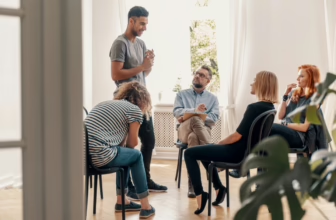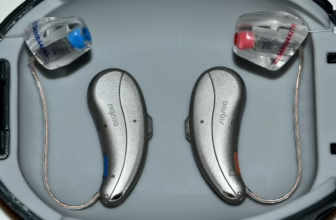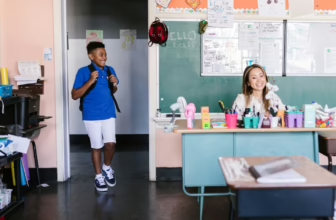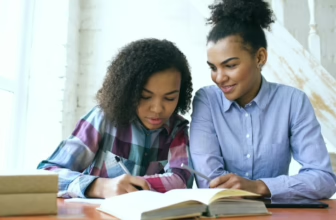Dating is hard enough without having to worry about navigating it with a disability. But that doesn’t mean you have to give up on finding love. In fact, there are plenty of ways to make the process easier and more successful for those who are living with a physical or mental disability. Here’s what you need to know about dating with a disability and how you can make it work for you.
Be Honest About Your Disabilities
When you first start dating someone, it’s important to be honest about any disabilities that you may have. Being open and honest about your condition will help ensure that your date understands any limitations or needs that you may have during the course of your relationship. It also helps to set realistic expectations so that neither party feels unfulfilled by the end of the experience. While this can be difficult in the early stages of a relationship, it will ultimately help foster trust and understanding between both parties.
Explore Online Options
Technology has made it much easier for people living with disabilities to find compatible partners online. Many online dating sites now offer filters specifically designed for those looking for partners with disabilities, allowing users to search through profiles based on specific criteria such as age, location, interests, and even disability type. This makes it easier than ever before for those living with disabilities to find potential dates without having to worry about disclosing their condition until they feel comfortable doing so.
When it comes to choosing the right website for individuals with disabilities seeking compatible partners, it is crucial to consider reliable resources that provide insights into the various platforms available. By consulting resources like Online For Love experts’ review on the pros and cons of eHarmony, individuals can better understand the features, accessibility options, and user experiences offered by different platforms, enabling them to make informed decisions about which website aligns best with their needs.
Plan Dates in Accessible Spaces
When planning a date with a disability, numerous ideas can make your day enjoyable. One popular date night option is to visit an animal attraction, cultural center, or museum; this can provide an exciting opportunity to learn and appreciate different animals, cultures, and art forms. If you prefer outdoor activities, picnicking in the park or taking a scenic drive can be equally rewarding. Going to a comedy show or a musical performance can make for a memorable date, as laughter and music have the power to bring people together, regardless of their differences. So, even with a disability, there are plenty of date ideas available to make your experience unforgettable.
Connecting Through Questions: Disability Dating Tips
Starting a conversation can be nerve-wracking, but it's the key to connecting with someone special. Begin by asking open-ended questions that invite thoughtful responses. Instead of sticking to the usual “How's it going?” consider delving into shared interests. Ask about hobbies, favorite books, or music preferences to discover common ground. For example, inquire, “What kind of activities do you enjoy in your free time?” This not only sparks a meaningful discussion but also helps you find common interests, making the conversation flow naturally. Remember, genuine curiosity and a positive attitude are powerful tools in navigating the dating scene with confidence and authenticity.
Open Up
When it feels right for you, tell potential partners more about your disability as soon as possible. By being open and honest from the start, it will help people understand what challenges come along with managing your particular condition and allow them to provide helpful support moving forward in the relationship.
Create Boundaries
Having boundaries in any relationship is important but even more so when living with a disability. Make sure to set boundaries ahead of time so that both parties know what they can expect from each other and how far they are willing or able to go in terms of activities or outings. This way they will be aware of any limitations or accommodations necessary due to your condition, which could help avoid any uncomfortable situations down the road.
Look Into Support Groups
If traditional dating isn’t your thing, consider joining a support group related to your particular disability. These types of groups provide an invaluable resource for connecting with other people who understand what it is like living with a disability – which can make all the difference when it comes time to potentially pursue a relationship down the line. There are also many support groups specifically geared toward helping those looking for love navigate the different aspects of modern-day relationships while living with disabilities – from setting boundaries and establishing consent protocols all the way through to developing healthy communication skills and self-confidence boosters along the way!
At first glance, navigating the dating scene while living with a disability might seem daunting – but remember that you don’t have to go at it alone! With some creativity and careful consideration, anyone can find love – regardless of their circumstances! By being honest about any limitations or needs that come along with their condition, exploring online options tailored specifically towards people living with disabilities, and tapping into various support groups available in their area, those looking for meaningful connections can find success in their quest for love.
Looking for more ideas? Check out our tips for dating with a chronic illness.
Photo by Igor Vetushko via Deposit Photos
Follow me down the rabbit hole!
I'm Alice and I live with a dizzying assortment of invisible disabilities, including ADHD and fibromyalgia. I write to raise awareness and end the stigma surrounding mental and chronic illnesses of all kinds.








